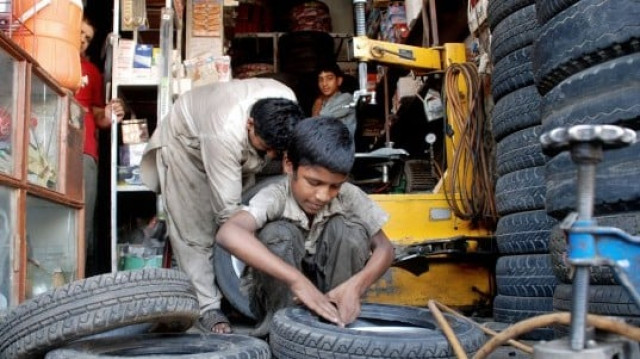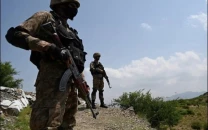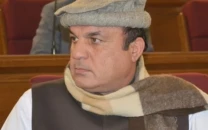Survey findings: No legislation against child labour in Balochistan
ILO survey shows that 500 children are working in coal mines in Loralai alone.

ILO survey shows that 500 children are working in coal mines in Loralai alone. PHOTO: SHAHBAZ MALIK
This revelation was made by ILO Senior Programme Officer, Farrukh Waseem Mirza, in an interview with The Express Tribune.

The ILO has recently concluded a rapid assessment in Quetta and Loralai and a total of 25 districts in Pakistan. As many as 120 households, 58 children and a number of government officials were interviewed during the rapid assessment survey in Loralai.
The survey shows the major reasons behind child labour are poverty, parents’ attitude and a lack of alternative opportunities.
“Children below the age of 14 and even 8 in some cases are working in coalmines,” says Mirza. “Interestingly, a majority of the kids have migrated from Khyber-Pakhtunkhwa. Balochistan shares a lesser percentage in child labour,” he adds.
The last government assessment on child labour was made in 1996, which showed that 3.3 million children were working as child labourers across the country. Balochistan’s share of this figure was a meagre 16 per cent. Since then, no official assessment of the societal issue has been made.
After the 18th Constitutional amendment, child labour has become a provincial subject. The ILO with the help of other stakeholders, including watchdog organisations, journalists, lawyers, legislators and politicians have drafted the Prohibition of Child Employment Act and sent it to the law department. The act will soon be tabled in the Balochistan Assembly for approval.

In Quetta, children are working as garbage collectors, carpenters and at automobile workshops. “We have identified sectors where children are working as labourers. These employers are risking children’s health,” he added.
According to the Society for Empowering Human Resources (SEHR), more than 10,000 children are working as labourers in Quettta of which 60 per cent are garbage pickers.
Moreover, a vast majority of children working as labourers are said to be Afghan nationals, but the ILO has not included Afghan children in its recent assessment survey. Afghan children are working as labourers at construction sites, coalmines, garbage collectors and automobile workshops. “Pakistani nationals were included solely in the survey,” Mirza told The Express Tribune.
SEHR had conducted a three-month-long signature campaign in Balochistan and revealed that those 47 per cent children of schoolgoing age do not have access to education in Balochistan and a million children have never attended school.
SEHR’s officials said, “All three provinces have enacted the law but Balochistan government is yet to introduce a law in this regard.”
Published in The Express Tribune, November 4th,2013.



















COMMENTS
Comments are moderated and generally will be posted if they are on-topic and not abusive.
For more information, please see our Comments FAQ